Samsung Galaxy S20 vs iPhone 11 By Mrwhosetheboss
Yesterday I compared Samsung's new Galaxy S 20 ultra with the iPhone 11 Pro Max the absolute best devices of both companies offer, however they're both massive and incredibly expensive. So almost a more important comparison is how good their main screen flagships are. So welcome to galaxy s, 20 vs. iPhone 11 and the conclusion here is no.1 I expected to make to hold the new Galaxy S 20 Fuels a lot like any other Samsung flagship. It's mostly glassware the curved back and a slightly narrower body than we're used to, so it's actually relatively compact feeling in the hand. I will say this, though it is in stark contrast with the way the iPhone feels.
Apart from height, that phone is bulkier in every dimension. It is thicker, it is wider and far heavier we're talking 194 grams, which makes the 163 gram s20 feel featherweight. Both phones are well-constructed. The casings are sturdy with Gorilla Glass on the front in the back, but I'm just not a fan of the way either looks they don't look like they mean business as much as their higher-end siblings. Do Samsung's s20 is visually a little bland.
In my eyes and at first glance, looks almost identical to the company's own mid-range phones, like the galaxy, a 51 and a 71, we're talking $400 devices here and then, as for the iPhone 11, it uses that slick matte finish that I loved about the iPhone 11 Pro and I never quite got used to how it has a square camera module, but cameras that don't actually fill it. Both have ip68 water and dust resistance ratings and neither has a headphone jack. So on balance in terms of design and materials, I'm halfway down the middle, neither is offensive looking, but neither is the prettiest bit of tech I've seen either by the way I've just launched a pretty massive giveaway of one Galaxy S 20 ultra and for galaxy s 20s. It is free and international, and all rules are in the description. Turning both devices over the narrative changes, I, don't think.
I've ever seen this much of a one-sided battle between two similarly priced devices. The s20 display is so far ahead of the iPhone xi that it feels like these two devices are from different decades, which I guess they kind of are. For starters, the galaxy s 20 s is larger and brighter. With a consistent, brightness level of close to 800 nits. There will be times when this phone is clearly visible, but when the iPhone are 625, is his actually difficult to read, plus the fat that I use.
OLED technology compared to LCD just means that it can reach deeper contrast, levels, we're talking a smartphone that can natively support, HDR, 10, plus content versus a phone that can't even support HDR, 10 and there's so much more here. I almost feel sorry for the iPhone resolution, for example. This is a quad HD plus panel, whereas this is actually below 1080p. That gives the Samsung over three times the number of pixels leather sink in to Apple's credit that doesn't make something screen three times better and the iPhone 11 is still reasonably crisp, but there's no shaking the sheer size of that gap and to add insult to injury, the galaxy s 20 uses the same 120 Hertz, refresh rate that we saw on the Ultra. That is twice the refresh rate to the iPhone and twice the touch response rate, making it by far the smoother and more responsive smartphone.
You almost don't expect it. We're used to seeing the compact smartphones from companies just kind of suck compared to their larger siblings. But that's not the case here. The S 20 is just as nippy as its Ultra cousin, so flying between apps on its dynamic AMOLED display is actually quite a surreal experience. The nail in the coffin for the iPhones display is that it's screen is surrounded by some of the thickest borders.
We've seen this side of 2018 and a forehead that would make Jimmy Neutron proud its resulting screen to body ratio at about 79% makes the s20 88% look very impressive. One thing Samsung has done is toned down the curvature of all the screens on the s20 phones, so you could argue: they've lost a little of that display melting into the sides, aesthetic that they had going on before, but considering that it wasn't really a functional benefit and I. Think too many people are going to care. It's good to see, though, with the iPhone 11. Yes, the display is compromised, but the internal performance is not at all.
It's got the exact same, a 13 Bionic chip and four gigs of RAM as the top-tier iPhone 11 Pro Macs, and if anything, the lowest screen resolution here means that games and apps should perform even better. On this, the galaxy s 20 is incredibly SPENT 2 we're talking eight or 12 gigs of literally the fastest Ram available on a smartphone, combined with the fastest chip seen on an Android device. That said, the optimization of iOS, combined with the fact that the iPhone has far fewer pixels to push means that more often than not I would expect it to get higher gaming frame rates. Now the camera situation here is much simpler than when we were comparing the thousand dollar-plus smartphones. There's no 108 megapixel camera, there's no 100 times Zoom to talk about.
But the important thing to remember is that when it comes to camera hardware, improvements generally speaking with each successive upgrade, the upgrades become harder to notice and the end image becomes more about the quality of the software as opposed to the equipment. So from everything I've seen the camera on the galaxy s, 20 is 90% as good as the one on the s20 ultras and the iPhone Elevens camera is 95% as good as the one seen on the pro, but between them. Let's take a look: both phones have a 12 megapixel main camera, but the s 20 is fitted with a brand-new sensor, almost 1.7 times larger than that of the iPhone, which should mean less noise and more detail both when there's a lot of light around and also when there isn't. This is actually quite an important point for Samsung one of the key areas their cameras have fallen behind in has been low-light video, but the s20 should be turning this weakness into a relative strength. On top of that, it can do 8k video, which is wartimes the resolution of the iPhones 4k video, that's not quite as impressive or useful as it sounds, I mean the 8k.
Video is a little junky and I. Don't think many people have a 8k monitor to watch it back on, but it's still a seriously impressive feat for a phone of this size both have all troy'd cameras, ?, which are pretty evenly matched. They both have a wide 120 degree fields of view and very little distortion I was impressed that Samsung has also made the transitions when switching between the lenses much smoother. That said, this is something the iPhone has done well right from the very start and the iPhone switching occurs like twice the speed. But finally, though, something has a zoom camera, the only specs given to me other it can do hybrid optical zoom at three times and super resolution.
Zoom up to 30 times, really, though, Samsung is talking in riddles here. These are marketing terms, and all we can really tell from this is that the actual magnification, the optical magnification of the s20, is less than three times. My best guess is that the zoom on this phone is a combination of actual real optical magnification, but also cropping into the sensor, because the telephoto camera is a sixty-four megapixel camera. So there is room to do this. They call it space zoom, which is a bit of a push for what it really is, but it's still ahead of the iPhone, and it's fairly safe to say that for the cameras in general, in most scenarios, Samsung will offer both more versatility and a better quality final output.
Something now has a pro video mode and a few genuinely thoughtful bits of software like better super steady, video with more advanced AI and improved hardware and a single take feature that lets you just press one button and capture both photos and videos using both white and ultra-wide cameras. It's a really clever feature. It's something! I never really thought about doing, but the second I heard them talk about it. It makes total sense because there's so many times, I find myself in where what I really want to do is enjoy the moment. But I've got to capture it too, and so this lets you do that.
You can capture everything without needing to think and worry about which lens you're, capturing width or whether you want a photo or a video. It just gets everything speaking of software. It is Android versus iOS and there's a good chance. You've already made your mind up over which one of those you prefer, but I will say this Samsung skin on top of Android has never been slicker I'm, not personally a fan of the new s20 wallpapers, but it has never been more satisfying to fly between home screens and open applications as it is on this phone right here and part of that is just because of how nice the haptics are on. The phone Samsung has taken the high quality vibration motors, seen on the e note, 10 plus last year, and further tuned them to deliver a new level of tactility, and something else I noticed this time round is that it feels like Samsung is trying to counter Apple's key software.
Differentiators they've built quick share. Their answer to apples. Incredibly good airdrop, and they've worked with Google to seamlessly integrate 1080p video calling into the phone's UI as an equivalent to Apple's FaceTime I still prefer Google's pixel skin in terms of raw visuals, but some songs 1ui isn't far behind the iPhone 11 software looks identical to every other iPhones, so there's not much to say about it. Apart from the fact that you can expect the iPhone 11 to get major updates for four to five more years, but the Samsung I give it no more than to the s 20 spatter II life is promising, but it's also a bit of a wild card. Its capacity is high at 4000 William hours, that's 20% more than that off the iPhone, but battery is one of those things that I'm going to have to reserve judgment for when I do my in-depth battery test.
So do you subscribe for that you've got to remember. The s20 display is brighter, it's larger, it's higher resolution, and it refreshes twice as fast, so it is going to chomp through battery, not to mention the difference between iOS and Android. Optimization yeah and both phones have fantastic audio with dual speaker, setups and reasonably good bass. Now, a couple of final things that I would say are going for Samsung before I bring this to it's quite interesting conclusion: charging the s20 charges are 25 watts of power and actually ships with a 25 watt charger I realize that sounds like an obvious point to make, but it's not the case with the iPhone, which can charge with 18 watts of power but Bernie ships with a 5 watt power, brick. The s20 starts with 128 gigs of expandable storage, which seems pretty generous next to the 64 gig non-expandable iPhone 11, if you're the kind of user who wanted to keep files stored locally.
That's a risky option to go for and in connectivity wise. The s20 is a 4 by 4, my mo phone meaning. It's got 4 and 10 I for better signal and better data bandwidth versus the 2 by 2, iPhone plus. Of course, the s20 has a 5 g option. Something no iPhone to date, offers that's a big deal in 2020.
If you are buying a phone now, you're going to use it till 2022 or 2023, probably and there's a good chance that, at least by then you'll probably want the option. There's more though, while both phones support wireless charging, the s20 has fast wireless charging 2.0 and can use this same charging coil to reverse-charge. Your friends phone and the final main consideration is just that both phones have a different approach to security. But technically speaking, Samsung has the more flexible option with both face scanning and a secure ultrasonic fingerprint scanner. But I'd argue that the face ID on the iPhone is as good, if not better than both of those put together.
In most cases, having your face scanned is just a simpler, more seamless solution than scanning your finger and a face idea itself is something like 20 times more secure than Samsung's fingerprint scanner. So who is the winner? In the end? It all comes down to both companies, unusual pricing structures for the s20 in the UK and some other regions. The base model is really reasonably priced, but what they've done is for other regions only to 5g version that pushes the price up so in the UK, the s20 is not hugely more expensive than the iPhone 11, and that makes it a complete no-brainer, in my opinion, a better value phone for ninety-five. Ninety-seven percent of users, no matter what ecosystem you're in, but in the U. S.
that's a bigger price gap, one for which there is a case for either phone depending on what your specific needs are, don't forget to check out the giveaway and if you haven't seen it yet, the s20 ultra versus iPhone 11 Pro max comparison, or at least yesterday. This is mister who's, the boss, and I'll catch. You guys in the next one.
Source : Mrwhosetheboss

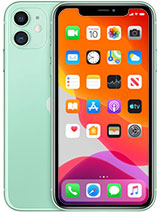
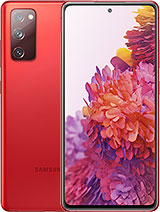
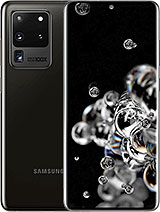
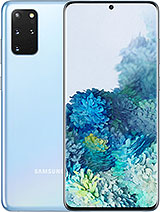
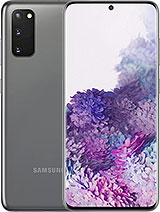
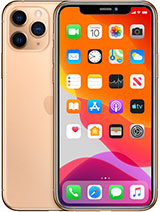






![How To Fix An App That Keeps Stopping || App Keeps Crashing On Android [ Solved ] 2021](https://img.youtube.com/vi/Kk_Vz2ZKGJE/maxresdefault.jpg )
















